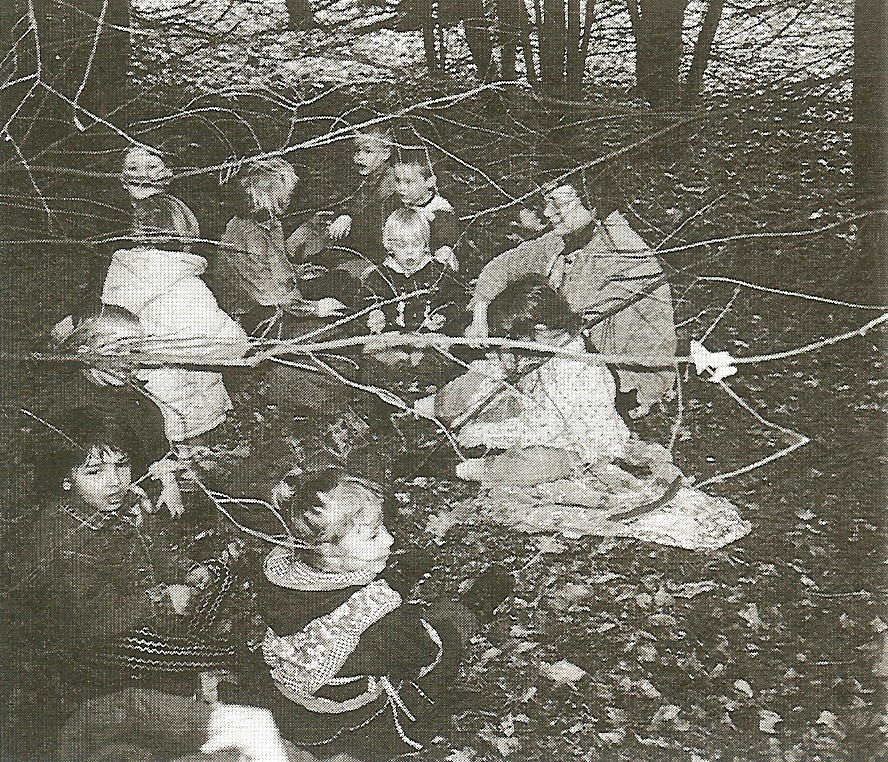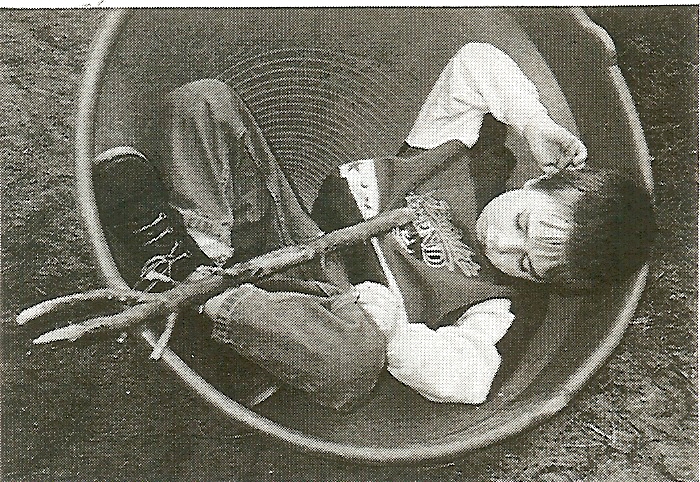by Hanna Vock
This is the short version of a kindergarten concept that I wrote in 1999 and agreed with my colleagues and the children’s parents. The kindergarten (parents‘ initiative) looked after 20 children all day, the opening hours were from 7:30 to 16:00.
Even then, we took in almost all the children around the 3rd birthday, siblings in individual cases even earlier.
Children need:
-
- Mental security
- Recognition and confirmation
- Clearance and durability
- Realistic role models
- Education
- Support in their development
- Motion and healthy nutrition
- Friends and an understanding environment
- Dreams and life goals
Parents‘ initiative – what does that mean for us parents?
As parents we want to
-
- take responsibility for the kindergarten,
- get a lot of information about what happens in the kindergarten and share it,
- co-design without bureaucratization,
- have fruitful discussions about educational content,
- work trustfully together with the kindergarten teachers.
Relationship between children and adults
Adults, when they show respect for children, have a natural authority with them based on experience, skill, knowledge and responsibility. When we kindergarten teachers turn to the children in a friendly way, we receive a lot of affection from the children. The power associated with this must not be abused by adults.
Our education aims above all to build up no feelings of guilt and inferiority, but rather self-confidence and responsibility among the children.
It is important to us to always respect the needs of the children and to give them independence and freedom.
But we also set ourselves apart from the inappropriate demands of the children and reject pampered moods calmly and firmly.
For us there are no favourites among the children. „Easy to care for“ and „difficult“, loud and quiet, cheeky and inhibited, thick and thin, grumpy and shiny, fast and slow, skilful and clumsy, quick tempered and controlled – they are all great, unique children.
The same requirements are placed on all of them, according to their age and stage of development. And all receive the same attention and devotion from adults.
Living together
For our living together in a group with children and adults, clear, comprehensible, valid rules are necessary, which all adhere to.
These rules should help that
-
- children’s freedoms are limited where it might be too dangerous for them,
- all children – assertive as well as shy – get their rights,
- the nerves of children and adults are not excessively strained,
- a reasonable degree of order is maintained.
We adults take responsibility for ensuring that the rules are reviewed from time to time and that the children know them and also the reasons for them. Everyone makes sure that the rules are adhered to, and of course we as adults bear the responsibility.
Freedom
The children should have as much freedom as possible. They are encouraged to express their opinions freely, to determine their own play and to express their needs clearly. Participation in games and activities is largely voluntary.
The kindergarten teachers encourage children to participate if they do not dare. The kindergarten teachers take care when individual children do not take part in certain activities. If they realise that participation is important for the child’s development or for his position in the group or for his self-esteem, they try to find out why the child does not want to participate. They act accordingly or leave the child alone.
Children are asked to complete things they have started, but not forced or urged to do so.
Offers are made from a variety of creative areas so that each child can find ways to develop its creativity: Playing theatre, singing, gymnastics, painting, experimenting, handicrafts, cooking, building, dancing…
We assume that children are usually the best experts for their basic needs (food, drink, motion, play, rest, warmth, fresh air, contact, distance). They are encouraged to take responsibility for themselves at an early age in these areas.

[It’s raining – but under dense trees it’s still comfortably dry.]
Learning
The focal points of our holistic learning concept are
-
- independence and a healthy self-esteem,
- social skills,
- emotional intelligence,
- dealing with conflict and aggression,
- ability to express oneself in body language and language,
- basic experience in many areas,
- challenge for independent and solution-oriented thinking,
- nature experience,
- critical handling of consumer offers.
Important methodological pillars of our work are project work and small group work.
Our children come to school well prepared.
We pay special attention to the advancement of children who are particularly eager to learn and to learn and whose interests and ability to concentrate go beyond those of their peers.
These children should find in us the necessary understanding for their particularly great need for self-determination and independence. We make sure that they always find challenges at their own level in everyday kindergarten life and thus contribute to their satisfaction and integration into the group as a whole.
Movement
Freedom of movement is a good measure of the outer and inner freedom a child possesses.
Children who are not allowed to move enough due to prohibitions and lack of space are restricted in their outer freedom. Children who move inhibited are internally unfree.
Both are very closely related in small children.
Our kindergarten is an kindergarten full of movement. The children are in motion almost the whole day, they only sit while eating and in the circle of chairs and when they want to sit down while painting or playing.
We have two rooms (in a former school pavilion). The entrance area, the kitchen, the sanitary facilities, the office/storage room are tiny, but our outdoor area is pleasantly large, close to nature and overgrown. It is used a lot. The children have many opportunities to rest, retreat, lie down or snuggle up somewhere.
[A nap after the romp]
The children can go outside at any time (except during the acclimatisation period and during lunch and morning circle) and play on our adventurous outdoor area. They are therefore very much in the fresh air.
Once a week we can use the gym of the neighbouring school. We also have a weekly „vehicle day“ where parents bring the children’s bicycles, tricycles, roller skates or similar. This allows the children to ride in the schoolyard after school.
Once a month we run and play in the forest for a few hours.
Religion
There is no religious education in our kindergarten. Thus, parents who do not wish to have religious education for their children or who want to educate their children themselves in these early years of life will find a suitable offer in our kindergarten.
We celebrate Easter, Thanksgiving, St. Martin’s Day, Advent and Christmas in the kindergarten according to customs and filled with universal ethical values.
Religious and other ideological themes, which the children from the different families bring to the kindergarten, are treated with respect and tolerance.
Nutrition
Our children receive a breakfast offer, a lunch and a small meal in the afternoon in the kindergarten.
All these meals are based on certain principles: low-sugar, wholefoods as possible (bread, rice), low in meat (no sausage, only meat or fish once a week at noon), lots of vegetables, lots of raw fruit and vegetables, lots of potatoes and rice.
Also the voluntary, alternating food supply by the parents (dessert or salad) depends on these principles. The kindergarten has a collection of recipes for wholefood desserts.
No child is ever forced or urged to eat anything or empty its plate. The tried and tested tasting portion is also offered to children, but is not imposed.
Full-day care
All our pitches are full day pitches. We find it positive when parents can practice their profession or pursue their own goals in some other way. We support mothers in caring for their children as well as for themselves, because satisfied parents are better parents for their children.
We consider it positive if children live together with other children in a group for a large part of the day. We observe again and again that free children often prefer the society of other children if they can vote, because most children can only satisfy their playing needs to a great extent together with other children.
We support parents to accept it positively and not to see it as a rejection or as a sign of a lack of parent-child bond if their child wants to visit another child in its home after the kindergarten day. Especially the child, who is kept in a safe and warm mother/father-child bond, separates easily and moves freely in the world without fear or guilt.
Read also the extended version of the concept.
Date of publication in German: 2012, October
Copyright © Hanna Vock, see imprint.

